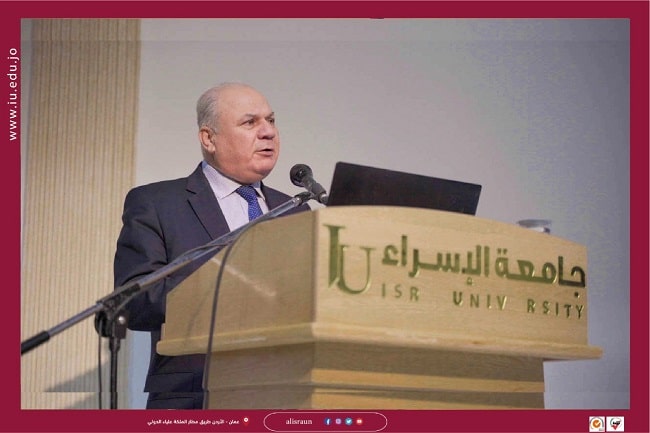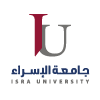
Under the patronage of His Excellency Prof. Muhammad Hamed, President of Isra University, the Faculty of Engineering organized training workshops in the field of renewable energy engineering entitled Wind Energy Evaluation and Legislation and in the field of architecture engineering entitled The Smart Sustainable Built Environment, which were held on Saturday, 9/12/2023.
At the beginning of the opening, His Excellency the President welcomed the attendees and pointed out that this scientific day is part of the approach of the university’s vision and mission to actively engaging students in the training workshops offered by the University’s Faculty of Engineering to Wadi Al-Seer Faculty students, which seeks to provide students with leadership skills and knowledge which would enable them to be the builders of the future of this good and generous country.
The university president emphasized the importance of renewable energy and its promising future in reducing the production of carbon dioxide and other greenhouse gases, ensuring a green and pure environment. Also, he
stressed the importance of building smart cities based on the principles of sustainability.
His Excellency the President of the University praised the efforts of the Faculty of Engineering, which includes an elite group of teaching members, which is considered as a model of successful partnership among sectors in various fields, which produced generations of male and female engineers, many of whom had imprints and achievements in multiple fields, stressing the need to intensify the efforts of the Faculty of Engineering to provide its students with the necessary skills and knowledge to harmonize the renewable and changing labor market requirements, especially in light of the technological developments we are witnessing.
The Dean of the Faculty of Engineering, Dr. Naseem Al-Numan, also stressed the importance of cooperation and openness to the local community in holding such training courses that contribute to raising students’ scientific and practical competence. It is important to mention that more than 150 participants from various community faculties participated in the training workshops.
The training workshops covered various topics, including wind energy evaluation, wind energy legislation, wind energy storage, smart sustainable architecture, smart cities, and their construction technology.
At the end of the training workshops, the students' inquiries and questions were answered, and the participants were accompanied to visit the Faculty of Engineering laboratories and familiarized with the mechanism of practical training on laboratory devices.


